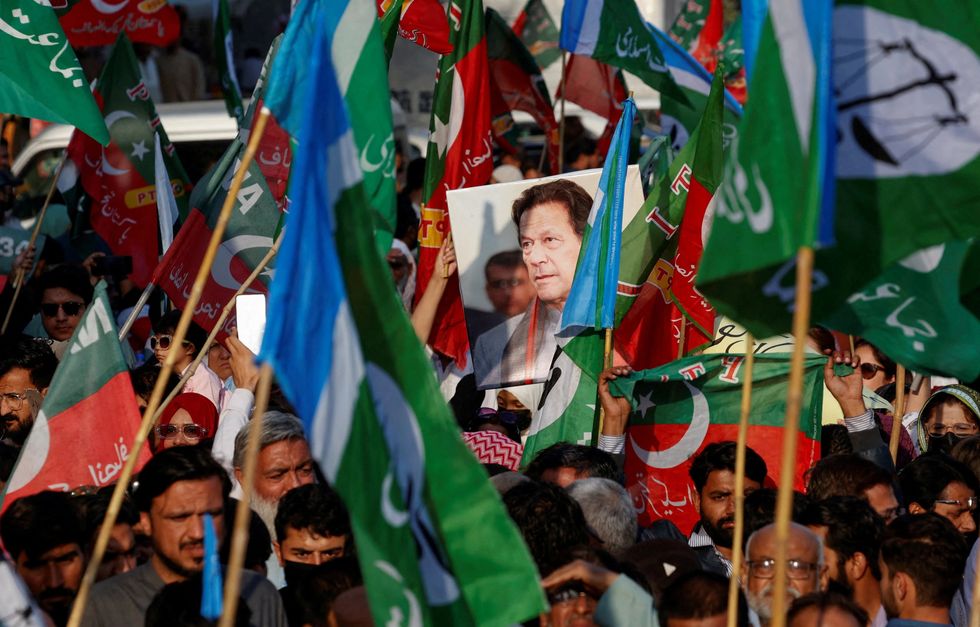What's next in the reserved seats saga? Legal experts weigh in
The deadlock stems from the Supreme Court’s July 12 ruling, which declared Pakistan Tehreek-e-Insaf (PTI) entitled to seats reserved for women and minorities

Aamir Abbasi
Editor, Islamabad
Aamir; a journalist with 15 years of experience, working in Newspaper, TV and Digital Media. Worked in Field, covered Big Legal Constitutional and Political Events in Pakistan since 2009 with Pakistan’s Top Media Organizations. Graduate of Quaid I Azam University Islamabad.

A view of the Election Commission of Pakistan building in Islamabad.
APP
The Election Commission of Pakistan (ECP) has filed a review application in the Supreme Court (SC), challenging the clarification order issued by an eight-judge bench on September 14 regarding the opposition Pakistan Tehreek-e-Insaf's (PTI) reserved seats. The development comes after the ECP initially delayed implementing the Supreme Court's landmark judgment.
The deadlock stems from the Supreme Court’s July 12 ruling, which declared that Pakistan Tehreek-e-Insaf (PTI) is entitled to seats reserved for women and minorities. However, the subsequent passing of the Elections (Second Amendment) Act 2024 by the ruling coalition has complicated the implementation of the court's decision.
The Supreme Court initially directed the ECP to consult judges if confusion arose, but the ECP's concerns were rejected on September 14. Nevertheless, the ECP has once again raised concerns, citing conflicts with the amended election law.
The review request highlights that the initial clarification related to the July 12 ruling was filed on July 25, but the Parliament later passed legislation affecting the matter. The ECP is now requesting the Supreme Court to reconsider its September 14 clarification, particularly in light of this new legislation.
The petition also notes that the Supreme Court did not formally notify the ECP to respond to documents submitted by PTI, which has created further confusion.
What do the legal experts say?
Legal experts believe that the Supreme Court may form a full court bench of 19 judges, including two ad-hoc judges, to hear the ECP’s review application, which also requests a stay on the July 12 order, since all 17 judges are available.
A three-member committee will fix the case, comprising Chief Justice Qazi Faez Isa, Justice Mansoor Ali Shah, and Justice Amin-ud-Din Khan. Notably, two of these judges previously rejected the Sunni Ittehad Council's application in the reserved seats case.
“Now it is a good excuse for the ECP not to implement the Supreme Court’s July 12 judgment," Hafiz Ahsan Khokhar, an advocate of the Supreme Court said. They can argue that a review against the order is pending and the law (Election Act) was also later changed hence, the law of the land currently is that independent MNAs cannot be notified as members of the PTI, he added.
Another legal expert and former judge of the Lahore High Court Shah Khawar said: “I did not see an implementation of the Supreme Court’s July 12 judgment in letter and spirit because the election commission through all its actions conveyed that it will not notify the PTI's MNAs.”
Arif Chaudhary, also an apex court lawyer and former president of the Islamabad High Court bar said that the government's actions, parliament's legislation, and the ECP's subsequent decisions all indicate that they don’t want to follow the Supreme Court’s orders.
“The July 12 orders of the Supreme Court are very clear. There is no need for clarification; eight judges still issued one. What more does the ECP want? All efforts are being made to not implement the order,” he said.
Why are reserved seats important?
The Sunni Ittehad Council (SIC) filed the case after the PTI-backed candidates, who ran as independents in the February 8 general elections, joined their alliance.
PTI, under the leadership of incarcerated former prime minister Imran Khan, was barred by the ECP from contesting the elections using its official symbol, the cricket bat, due to electoral law violations. The order was also upheld by the apex court. Despite this setback, PTI candidates won 93 seats in the National Assembly, outpacing all other parties. The Pakistan Muslim League-Nawaz (PML-N) secured 75 seats, while the Pakistan People’s Party (PPP) won 54 seats.

In total, 266 National Assembly seats are contested in the general election. An additional 70 reserved seats, 60 for women and 10 for minorities, are distributed as per the number of seats a party secures in the general election. A party or coalition needs 169 seats for a simple majority, and 224 seats for a two-third majority.
The reserved seats are important because the current ruling alliance of the PML-N and PPP desperately need more seats to pass the controversial Constitutional Amendments 2024. Their erstwhile ally, Maulana Fazlur Rehman - chief of the Jamiat Ulema Islam-Fazl (JUI-F) withdrew support, stripping the government of its parliamentary majority.
Judges committee dispute
On the other hand, the division between like-minded judges of the apex court has also intensified.
The judges' committee, formed under the Supreme Court Practice and Procedure Law, to fix benches for case hearings is also under dispute. One of its members, Justice Mansoor Ali Shah, has refused to sit on it after the third senior-most judge, Justice Muneeb Akhtar, was swapped by Justice Amin-ud-din Khan - believed to be an ally of CJP Isa.
Despite Justice Mansoor's recusal, CJP Isa and Justice Amin have proceeded with fixing cases and forming benches, including a new bench to review the 63A defection case verdict.
“With amendments in the Supreme Court Practice and Procedure Law, the judges committee is presently empowered to fix cases. It seems that the case of the reserved seats will be fixed after the outcome of the Article 63A defection case hearing fixed for Monday, September 30,” lawyer Shah Khawar observed.







Comments
See what people are discussing